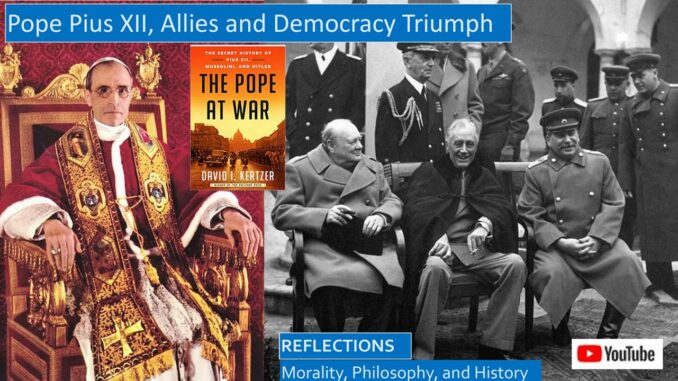
Soon after Cardinal Pacelli was crowned Pope Pius XII, the Nazis blitzkrieged across Poland. In our prior video we reflected on the difficult early years of the war when the Axis Powers were on the march across Europe, most expected the Nazis would invade England and that the war would soon end with the Nazis triumphant across Europe.
Pope Pius XII, Wartime Pope, Allied Powers Turn the Tide of War
This YouTube video: https://youtu.be/pjMa3JdjW48
Script with Amazon book links: https://www.slideshare.net/BruceStrom1/pope-pius-xii-wartime-pope-allied-powers-turn-the-tide-of-war
Pope Pius XXII: Back Channel Between Hitler and the Pope
https://seekingvirtueandwisdom.com/world-war-ii-back-channel-between-hitler-and-pope-pius-xii/
YouTube video: https://youtu.be/6xdxvchkWyY
Pope Pius XII, Wartime Pope, Axis Powers March Across Europe
https://seekingvirtueandwisdom.com/pope-pius-xii-wartime-pope-axis-powers-march-across-europe/
YouTube video: https://youtu.be/L1bkOQNrlzg
Pope Pius XII, Wartime Pope, Could the Pope Have Done More To Save the Jews?
https://seekingvirtueandwisdom.com/pope-pius-xii-wartime-pope-could-the-pope-have-done-more-to-save-the-jews/
YouTube video: https://youtu.be/ONnAcLLBNog
ROLLBACK AND DEFEAT OF THE AXIS POWERS
When the Allied Powers won the war, was this a victory for democracy? You might have questioned the famous photograph of the Yalta Conference, where Winston Churchill, Franklin Roosevelt, and Joseph Stalin were seated together. What does Stalin have to do with Democracy? These very same questions were on the mind of Pope Pius XII and many Catholics who worried that Russian and communism would seize control of continental Europe once Hitler was defeated. We must remember, Stalin agreed that free elections would be held in Eastern Europe, but when the Communists lost some elections, Stalin changed his mind.
When do the Italians first realize that Mussolini and Hitler might possibly lose the war? Our beloved author gives us a hint exactly halfway through his book, The Pope At War, when, “late on the night of October 22, 1942, wave after wave of British bombers swooped below the clouds over Genoa, Italy, and released hundreds of bombs.” Later, Milan and Turin would be bombed. Soon after, Rommel’s Afrika Corps would be defeated, and American soldiers waded ashore in North Africa in Operation Torch.[1]
What was the primary concern of the church during World War II? The very survival of the church, of course. The pope became very worried when in early December 1942 he learned that a London broadcast threatened that the Allies would bomb Rome. The pope inquired through diplomatic channels whether FDR would spare Rome, an American official repeated the British question, Had Pope Pius XII protested when London was bombed by the Nazis?
England was a Protestant nation and unsympathetic to the pope, but FDR had many Catholic voters, so he agreed to spare Rome if Mussolini would move all military activities out of Rome, which he said he would do, but never did. But the Allies would only bomb the rail-yards and airports of Rome, the Vatican would not be bombed intentionally, but some errant explosives would wander into the Vatican City in the confusion war brings.[2]
We ended our prior blog and video with the German forces fifteen miles from Moscow in December 1941. The Nazis would get no closer, the winter blizzards had set in, the German tanks were stuck in place, and the Nazi soldiers had inadequate winter clothes, many froze to death. At the beginning of the invasion, the Nazis had 209 combat ready divisions on the Eastern Front, this had been whittled down to 58 divisions by March 1942.
BATTLE OF STALINGRAD
The next year, facing fuel shortages, the Nazi armies raced to capture the vast oil fields at Baku.[3] But STALINGRAD stood in the way. We have read about the horrors of Stalingrad, two evil empires with no regard for casualties forced its soldiers to fight at gunpoint, shooting them if they dared to retreat, with incredibly savage urban warfare on both sides, soldiers shooting at each other through holes in walls and floors in ruined buildings. The stories of this battle are legendary, civilians and women taking up arms to fight the invaders, snipers sniping hundreds of soldiers, some soviets hurriedly manufacturing tanks in their Stalingrad factories, rolling them off the assembly line directly into battle. There were millions and millions of casualties in over five months of brutal combat, ending in Nazi surrender. After Stalingrad, the Nazis were in retreat.[4]
Kertzer reports, “News of the Axis debacle at Stalingrad, the defeat of Axis forces in North Africa, and the Allied bombing raids on Sicily, together with the worsening food shortages, with meat, dairy products, bread, pasta, and much else in short supply, was fast eroding support for the Fascist regime.” [5] Plus, everyone was asking, Would the Allies invade Sicily or Sardinia? Would the Allies then invade Italy? The pope and all in the Vatican had a more long-term worry, If the Russians defeated Germany, would continental Europe be conquered by the communists?[6]
MUSSOLINI IS DEPOSED
In reaction to the invasion of Italy, Mussolini is deposed. In early May British bombers did fly over Rome, but instead of dropping bombs they dropped “flares and leaflets that threatened the Italians with destruction if they did not renounce the Axis alliance. It was the first time Allied planes had appeared in the skies over Rome since the war began.”[7] King Victor Emmanuel III and many ranking fascists were concerned, the Allied soldiers who had invaded Sicily were greeted with cheers and flowers from enthusiastic Italians. Mussolini’s longtime fascist colleagues convinced him to call a meeting of the Fascist Grand Council, which had not met in three years. The meeting was tense, many wondered if they would be arrested and shot. Unexpectedly, one of the members denounced Mussolini at length to his face, and a solid majority voted to return the position of military commander-in-chief to the king. The next day the king deposed Mussolini, and at his generals’ urging, had him arrested.[8]
Italy’s new prime minister was the seventy-two-year-old military man Pietro Badoglio, who was a key player in many of the atrocities of the Italian campaigns. Churchill was ambivalent about his past as long as joined the Allied cause.[9] But Badoglio was hesitant to switch sides, there were tens of thousands of German troops in Italy, not to mention hundreds of thousands of Italian troops fighting on the Eastern Front, how could he safely extricate Italy from the war?
Badoglio dawdled; Hitler was resolute. German troops poured across the Northern border, there was little Italian resistance.[10] After Badoglio finally signed the Allied armistice, he agreed to have his Italian forces guard Rome’s airport so the Allies could land troops to take Rome. This did not happen, Kertzer does not say why, perhaps the German troops entered Rome too quickly. Or perhaps the Italian troops simply melted away.
Kertzer recounts an Italian diary entry, “Our army melted like fog in the sunshine,” “an army in ruin, without leaders, without arms, without discipline, with really only one wish: not to fight anymore against anyone, for any reason.” “Everywhere, arms abandoned, camps abandoned,” even when facing token German forces.[11]
GERMANS SEND ITALIAN JEWS TO THE DEATH CAMPS
Under Mussolini, the Jews had been persecuted, and many foreign Jews had been rounded up into concentration camps, but he had little enthusiasm for the final solution. The Nazis, who occupied Rome for nine horrible months, were much more enthusiastic about the Final Solution. Barely two weeks after German troops seized Rome, the orders came to start rounding up the Jews to transport to the death camps.[12] There were few who were willing to help the Jews, because the Nazi soldiers were armed and brutal, but also because many devout Catholics held anti-Semitic views, as we saw in our discussion of the Dreyfus Affair that tore French politics apart in the interwar years.[13]
Kertzer surveys the history of anti-Semitism in Rome. “Jews had been living in Rome for over two thousand years. Four centuries earlier, when Pope Paul IV first mandated that they be confined to a walled ghetto, locked in at night, 2,500 Jews had lived in Rome. In good part impoverished, they were subject to draconian laws mandated by the popes to keep them in their humble state and to limit all contact with their Christian neighbors. They were further humiliated by the requirement that they regularly attend conversionary sermons at a nearby Catholic church. They lived in fear as well that church authorities would seize their children. Church practice demanded that Jewish children who were baptized, even without the knowledge or consent of their parents, could not be raised by Jews and so were taken from their families. Under the thumb of the pope, and at their mercy, the Jews in Rome came to be known as the Pope’s Jews. The situation came to an end only with the conquest of Rome by Italian military forces in 1870, and with it the end of the papal states.”[14]
Over 1,200 Jews were gathered in the first roundup, and many of them were sequestered a stone’s throw from the Vatican awaiting the arrival of their cattle cars at the train station to take them to Auschwitz, without food, and without water. Pope Pius XII summoned Weizsacker, the German ambassador, to protest. The pope was primarily concerned with the fate of the Jews who had been baptized as Catholics, and the ambassador said these converted Jews would be released. Weizsacker said he could do no more, that these “instructions came from the highest source.”
These Jews were transported directly to Auschwitz. Most of them, including the children, the elderly, the infirm, were sent directly to the gas chambers, a few hundred were sent to the labor camps, most were worked and starved to death, less than a few dozen survived the war.[15]
Many Jews had escaped the initial roundup, some simply hid out in friends’ houses, suspecting something was up. But now many Jews sought refuge. How eager was Pope Pius XII to shelter the Jews? After researching the archives of this pope, Kertzer is less accommodating to the pope than he was in his prior book, The Pope and Mussolini. As could be expected, some monasteries and convents turned away the desperate Jews, sending them to their deaths; others would admit them only if they agreed to be baptized; while some virtuous clergy hid as many Jews as they could. The Vatican newspaper, for once, broke its silence, complaining about how Jews who were baptized Catholics were also rounded up for the concentration camps.[16] Regarding the thousands of Jews sent to their deaths, Pope Pius judged that it was best to say nothing.[17]
Could Pope Pius XII done more to save the Jews from the death camps?
Should the pope have protested the treatment of the Jews, and the Catholic clergy in Poland?
In this sister video we will reflect on these questions at length, plus another related question:
Why did Hitler respect he neutrality of Vatican City when German troops occupied Rome for nine long months? Certainly, his troops could have marched into the Vatican and imprisoned the pope, there was precedent, Napoleon had imprisoned the pope. Why didn’t Hitler simply send the pope and his cardinals to the death camps at Auschwitz?
THE ALLIES LIBERATE ROME AND THE VATICAN
The Allies had landed troops on mainland Italy near Naples in September 1943,[18] but the Italian mountains were easily defended, it would be nine months before the Allied forces entered Rome.[19] The Germans transported six hundred thousand Italian prisoners-of-war for forced labor in Germany.[20] But soon after the Germans advanced, Ernst von Weizsacker, the German ambassador, assured the pope that the Germans would respect Vatican neutrality.[21]
Learning where Mussolini was being held, Hitler arranged to “rescue” his fascist friend. He was being held in a mountain resort, he was rescued by a small contingent of troops led by the famed Oscar Skorzeny who attacked the hotel, the Italian soldiers offered no resistance.[22]
Hitler installed Mussolini as the head of the puppet Nazi government, the Italian Socialist Republic, guarded by Nazi troops, but he was more a prisoner than a leader.[23] Mussolini and his lover would be executed by partisans when they tried to flee to Switzerland, their bodies would swing from the scaffolding of a gas station.[24]
Pope Pius XII worried about the chaos that would occur as the American soldiers fought their way into Rome. But remarkably, Kertzer reports that “Hitler himself ordered Marshal Kesselring to prevent Rome from becoming a battlefield.” The Germans proposed to the Vatican that Rome be declared an open city, and although the Americans did not agree to do this, this tacit arrangement meant that the German forces simply marched north out of the city. Shortly afterwards, the Americans marched into Rome from the South, sooner than authorized.[25]
In his discussions with the American envoy, Pope Pius XII once again expressed his fear that the Russians and communism would dominate post-war Europe. The pope mistrusted democracy, hoped the Americans would occupy Italy for a time, and thought that the monarchy should be restored.[26] This Catholic fear of democracy would not abate until the bishops convened for the Second Vatican Council several decades later.
DISCUSSING THE SOURCES
The histories of David Kertzer read like historical novels; they succeed in bringing you back so you can sense what it was like to live in those years gone past. David Kertzer is Jewish and has also reflected on the history of anti-Semitism, including his well-regarded 2001 book titled The Popes Against the Jews, The Vatican’s Role in the Rise of Modern Antisemitism, but he is also a fair but skeptical historian, and I do not think he has an anti-Catholic bias.
https://en.wikipedia.org/wiki/David_Kertzer
The Vatican press published a criticism of Kertzer’s book, but judging from Kertzer’s response, it does not appear that whoever was writing this criticism actually read the book, that they were consulting with someone else who provided them with quotes from the book. This includes criticism of his account of the back-channel between Hitler and Pope Pius XII, which is rather embarrassing to the Vatican, though the only “accomplishment” of these talks was to possibly delay some Nazi persecutions and Vatican criticisms. Kertzer’s portrait of Pope Pius XII confirms that he was not naïve, the pope knew that Hitler could not be trusted to comply with the terms of any treaty or agreement.
The Jesuit magazine “America” has a more balanced review that follows closely with my reflections, this is their summary:
From the Jesuit “America” magazine: “Kertzer, a professor of anthropology and Italian studies at Brown University, suggests Pius’ primary motivation was fear: fear for the church and Catholics in German-occupied territories if, as he believed until the very end, the Axis won; and fear of atheist Communism spreading across Christian Europe if the Axis lost.”
The Jesuit “America” review also includes this interesting reflection: “Marla Stone, professor of humanities at the American Academy of Rome, said the book ‘takes a position between the previous poles of historical interpretation.’”
“Previously, the choices were either Pius XII was ‘Hitler’s Pope,’ deeply sympathetic to the Nazis, eager for a Nazi-Fascist victory, obsessed with the defeat of the Soviets at all costs, and a dedicated anti-Semite,” she told a panel at the academy last month. “The other historiographic position held that Pius XII did everything within his power to help those suffering under Nazi and Fascist oppression and that he was merely constrained by circumstances.”
Also, from the Jesuit “America” review:
“The Rev. Peter Gumpel, the German investigator who promoted Pius’ now-stalled cause for sainthood, has argued that Pius couldn’t speak out more publicly because he knew it would enrage Adolf Hitler and result in more Jews being killed. He cites the case of a Catholic bishops in the Netherlands who spoke out against the deportation of Jews and the Gestapo’s response: deporting Jews who had converted to Catholicism.”
This review also has an interesting recent account of how scholars were given access to these archival materials.
This review also has an interesting recent account of how scholars were given access to these archival materials.
The picture in the review shows the US envoy to the Vatican, Myron Taylor, meeting with Pope Pius XII. During the war, Pope Pius XII had extensive policy discussions with Myron Taylor, appointed by FDR, who was the first American envoy to the Vatican. Their talks are also an interesting narrative we did not cover in our short reflections, we urge you to purchase the book to read this account.
[1] David Kertzer, The Pope at War (New York: Random House, 2022), pp. 247-248.
[2] David Kertzer, The Pope at War, pp. 252, 291.
[3] https://en.wikipedia.org/wiki/Operation_Barbarossa
[4] https://en.wikipedia.org/wiki/Battle_of_Stalingrad
[5] David Kertzer, The Pope at War, p. 266.
[6] David Kertzer, The Pope at War, pp. 269, 290.
[7] David Kertzer, The Pope at War, p. 281.
[8] David Kertzer, The Pope at War, pp. 303-312.
[9] David Kertzer, The Pope at War, pp. 317-318.
[10] David Kertzer, The Pope at War, pp. 324-325.
[11] David Kertzer, The Pope at War, p. 350.
[12] David Kertzer, The Pope at War, p. 359.
[13] https://en.wikipedia.org/wiki/Dreyfus_affair and https://youtu.be/VRQG_uQSZiw
[14] David Kertzer, The Pope at War, p. 360.
[15] David Kertzer, The Pope at War, pp. 362-368.
[16] David Kertzer, The Pope at War, pp. 379-382.
[17] David Kertzer, The Pope at War, p. 387.
[18] David Kertzer, The Pope at War, p. 343.
[19] https://en.wikipedia.org/wiki/Italian_campaign_(World_War_II)
[20] David Kertzer, The Pope at War, p. 351.
[21] David Kertzer, The Pope at War, p. 349.
[22] https://en.wikipedia.org/wiki/Gran_Sasso_raid
[23] David Kertzer, The Pope at War, p. 395.
[24] David Kertzer, The Pope at War, p. 457.
[25] David Kertzer, The Pope at War, pp. 424-425.
[26] David Kertzer, The Pope at War, pp. 429-434, 467.

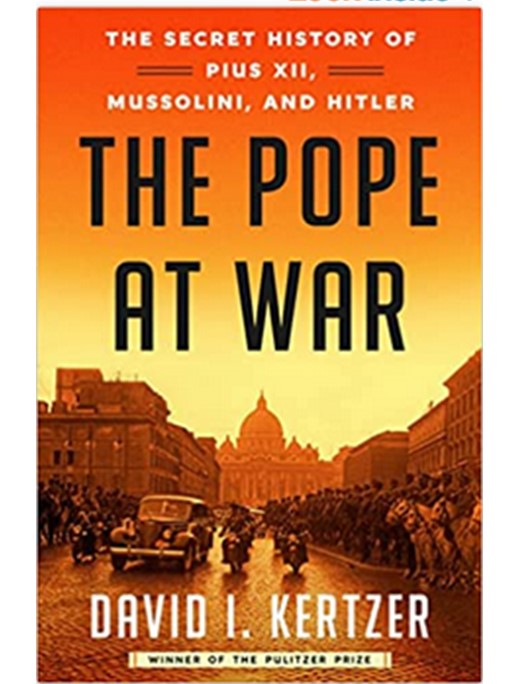
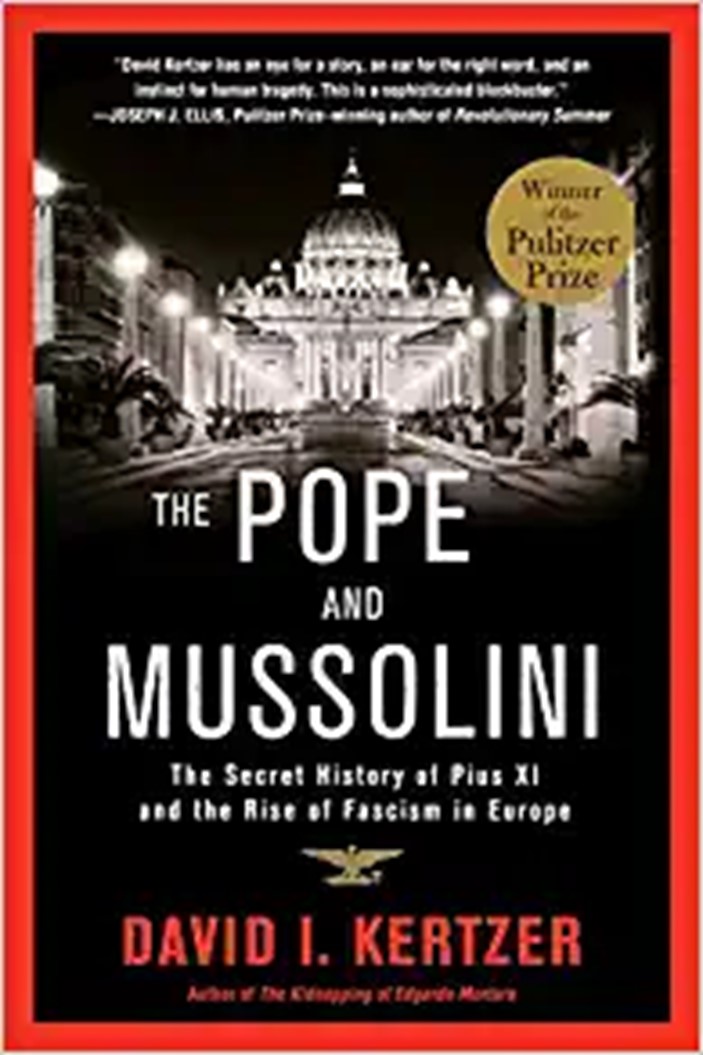
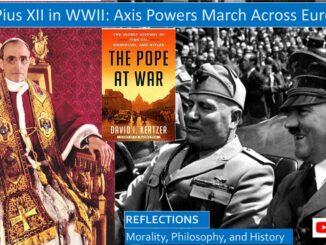
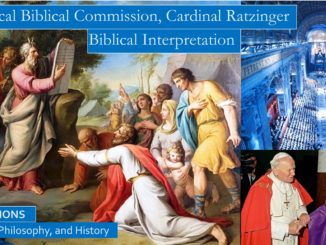
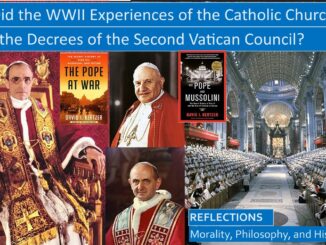
4 Trackbacks / Pingbacks